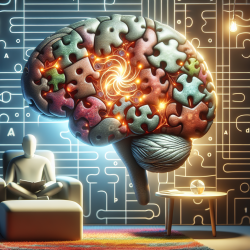In the realm of educational psychology, P.Ya. Galperin's work stands as a monumental contribution to understanding mental actions and cognitive development. As a practitioner in speech-language pathology, integrating his theories into your practice can yield significant improvements in therapy outcomes. Here's how you can harness the insights from Galperin's research to elevate your online therapy services with TinyEYE.
The Theory of Stage-by-Stage Formation of Mental Actions
Galperin's theory revolves around the structured development of mental actions through specific stages. These stages include:
- Motivational Orientation
- Material or Object-Related Actions
- Perceptual Actions
- Verbal Actions
- Mental Actions
Understanding these stages can guide your approach to developing individualized therapy plans for children, particularly in areas such as language acquisition and cognitive skills.
Practical Application in Online Therapy
Implementing Galperin's theory in online therapy sessions can be broken down into actionable steps:
1. Assess the Motivational Orientation
Start by understanding what motivates each child. Use engaging activities to spark their interest and create a conducive learning environment.
2. Focus on Material Actions
Incorporate tangible objects and interactive tools in your online sessions. Use visual aids, manipulatives, and interactive software to make abstract concepts more concrete.
3. Develop Perceptual Actions
Encourage children to observe and interact with their environment. Use exercises that promote visual and auditory discrimination to strengthen their perceptual skills.
4. Transition to Verbal Actions
Guide children to describe their actions and observations verbally. This helps in bridging the gap between material actions and mental processes.
5. Cultivate Mental Actions
Finally, foster the ability to perform actions mentally. Use problem-solving tasks and mental visualization exercises to enhance cognitive flexibility and abstract thinking.
Encouraging Further Research
Galperin's work provides a robust framework, but it's crucial to stay updated with ongoing research and advancements in the field. Encourage your team to engage in continuous learning and contribute to the body of knowledge through practical research and case studies.
Conclusion
Integrating P.Ya. Galperin's theories into your online therapy practice can transform the way you approach child development and therapy. By understanding and applying the stages of mental action formation, you can create more effective and personalized therapy plans that lead to better outcomes for children.To read the original research paper, please follow this link:
The Scientific Biography of P.Ya. Galperin: Stages of Life and Creative Work.










